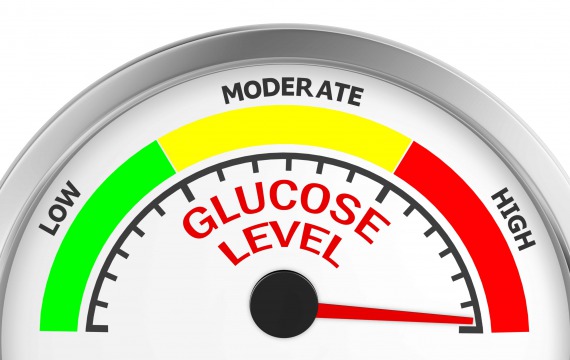When the body has insulin resistance, it cannot metabolize carbohydrates for energy and leads to increased, abnormally high blood sugar levels – this dangerous condition is called “Type 2 Diabetes”.
Type 2 Diabetes Facts:
- More than 30 million Americans have Diabetes (about 1 in every 10)
- 95% of those diagnosed with diabetes have Type 2 Diabetes
- More than 90% of people with Type 2 Diabetes are obese
- Diabetes is the seventh leading cause of death in the US
- Diabetes is the number one cause of:
- kidney failure
- lower-limb amputation
- adult-onset blindness
- People with diabetes are 2X more likely to have a stroke or develop heart disease
- Smokers are 30-40% more likely to develop diabetes than non-smokers.
- In the last 20 years, the number of adults diagnosed with diabetes has more than tripled
Type 2 Diabetes and Insulin Resistance Definition
Insulin is a hormone produced by the pancreas that helps unlock the body’s cells so that sugar (glucose) from the food we eat can be used by the cells for energy. When there is elevated sugar in the blood, the body produces more insulin to compensate.
Over months and years, insulin levels adjust to keep elevated blood sugars balanced. But after a while of excess sugar in the blood stream, the body essentially becomes “immune” to insulin – due to it not being able to do “its job” of regulating blood sugar levels. This is called insulin resistance.
When the body has insulin resistance, it cannot metabolize carbohydrates for energy and leads to even more significantly increased, abnormally high blood sugar levels – this dangerous condition is called “Type 2 Diabetes”.
What about Prediabetes?
You might be thinking: “Oh, I don’t have to worry, I haven’t been diagnosed with diabetes”! But it is important to note that in the US, 84.1 million adults—1 in every 3—have prediabetes, and 90% have no idea they have it.
Prediabetes is when blood sugar levels are higher than normal, the body is well on it’s way to insulin resistance, but not to the point to be diagnosed with diabetes. This is alone is a serious condition.
As we talked about earlier, this is the stage when the body is producing more and more insulin, trying to catch up, and all the while the body is becoming close to insulin resistance. Seek help if you question the stability of your blood sugar.
Prevention and Reversal
First, consult a qualified physician and do your homework. There are numerous treatments and combinations of treatments for insulin resistance, Type 2 Diabetes and Pre-diabetes including surgery, medication and diet and exercise programs.
In the mean-time, below are sure fire prevention and treatment techniques to immediately focus on and implement.
Weight Loss
The easiest way to curb diabetes is by losing significant excess body weight. Many have found weight loss surgery to be an immediate cure or reversal of insulin resistance and Type 2 Diabetes.
Exercise
Regular physical activity does wonders for regulating blood sugar. When you exercise, your muscles become more sensitive to insulin and absorb more glucose from the blood. However, like many aspects of type 2 diabetes, the response can be highly personal.
Conscious Eating
Sugar is everywhere. Be cautious about what you eat (and how much) as any type of sugar will directly impact your blood sugar levels. A trained nutritionist is best to build a healthy diet and exercise program to help treat insulin resistance and diabetes.
Stress Management
Of all the hormones in the body, only insulin causes the liver to take sugar out of the bloodstream and store it in the form of glycogen. Stress hormones cause the liver to secrete glucose back into the bloodstream elevating blood sugar levels.
Hydration
Drinking sufficient water helps flush toxins and cleanse our bodies. Dehydration Drives Up Blood Sugar as it becomes more concentrated in your blood stream, high blood sugar levels can cause you to urinate more, resulting in further dehydration – see the dangerous cycle? Drink your water…
Learn more about Dr. Ayoola and Weight Loss Specialists of North Texas


